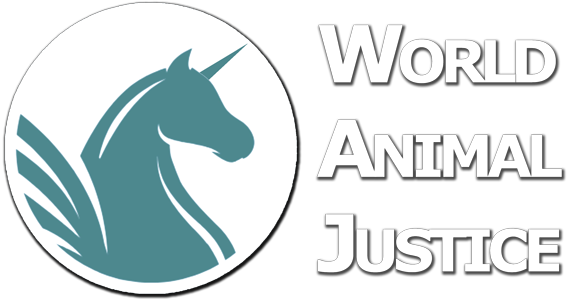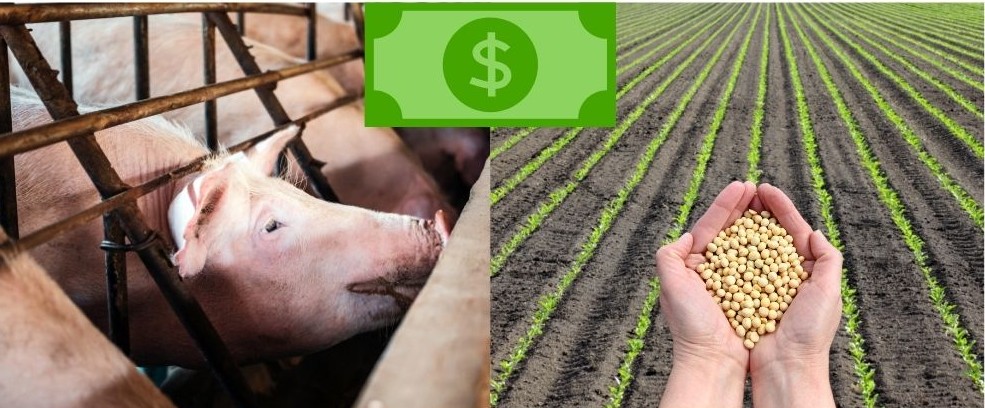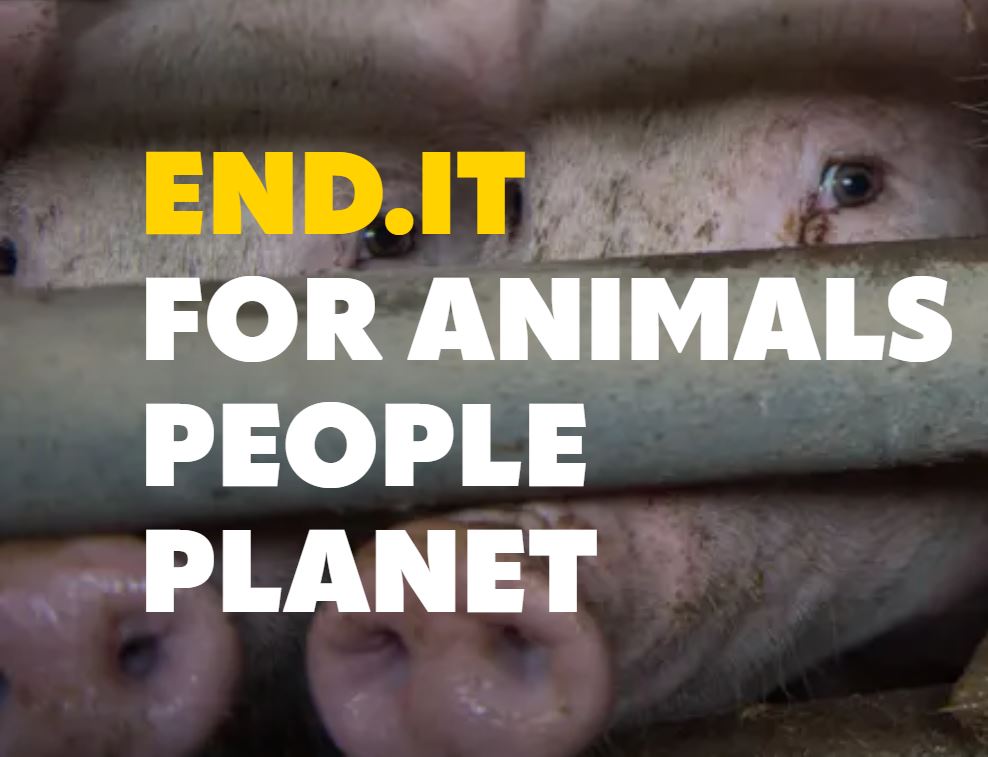Why Defunding Factory Farming is A Global Priority?
The Case for Sustainable Food Governance and Plant Proteins Transition
Abstract: This paper is advocating for the reallocation of subsidies away from factory farming to sustainable agriculture. It examines the legal imperative to defund factory farming while considering its ethical, environmental, and public health impacts. It highlights the global imperative to reallocate major subsidies away from harmful industrial farming to support the transition in developing plant-based proteins for human consumption. In particular, it demonstrates that current private and public policies violate international, European, and national sustainability commitments. These policies also contradict public demand for ethical, healthier, and environmentally responsible food systems. By advocating for a transition to plant-based protein sources, this WAJ initial study illustrates how legal frameworks can support sustainable food governance.
The industrial-scale farming of animals is one of the most destructive systems legally perpetuated by modern society.
Factory farming is a leading cause of crimes against animals, biodiversity loss, pollution, climate change, and deforestation, as well as a significant contributor to public health crises and severe violations of environmental and animal welfare standards. Despite these devastating impacts, governments worldwide continue to subsidize the industry with billions of dollars, making taxpayers complicit in an environmental and ethical disaster. Instead of sustaining this unsustainable model, global policymakers must defund factory farming and redirect financial resources toward sustainable plant-based proteins.
This shift aligns with international and national commitments, including the United Nations’ Rio Conventions and Sustainable Development Goals (SDGs), the Paris Agreement, the EU Green Deal, and national initiatives and laws such as in France.
Reallocating public funds toward plant-based alternatives is not just an ethical decision, but an urgent need for the States to respect their commitments to sustainability, as well as a policy imperative to protect animals, humans, and the planet.
Defunding Factory Farming: Redefining Food System Priorities
The concept of “Defund Meat”—which can be broadly extended to factory farming—was defined at the “Defund Meat” conference in Heidelberg (mpil.de) in January 2025 at the Max Planck Institute by Professor Saskia Stutki, as follows:
“Defund Meat encapsulates the commonsensical idea that we should reduce or eliminate public support for an industry that has become increasingly harmful and destructive, and set up a system of laws and policies that are conducive to transforming the food system in line with our commitments to public health, animal welfare, and environmental sustainability.”
This definition highlights the urgent need for policy changes that shift financial and regulatory support away from the meat industry, advocating for a more sustainable and ethical food system.
Factory Farming: The Most Criminal Industry on Earth
Factory farming stands as one of the most egregious practices on Earth, responsible for causing immense suffering and the deaths of an estimated 3.4 to 6.5 billion terrestrial and aquatic animals every day (Our World in Data) (The Guardian).
This unprecedented scale of killing surpasses any known rates in human or animal history, presenting numbers that are difficult for the human mind to fully comprehend. Such extensive and systematic destruction of animal life involve ‘crimes against animality’ and can be described as a “zoocide”, a term denoting the mass killing of animals. (WAJ Report)
This industrial-scale slaughter not only raises profound ethical concerns but also inflicts severe damage on our environment, depleting vital natural resources, causing major threats to public health and undermining global sustainability efforts.
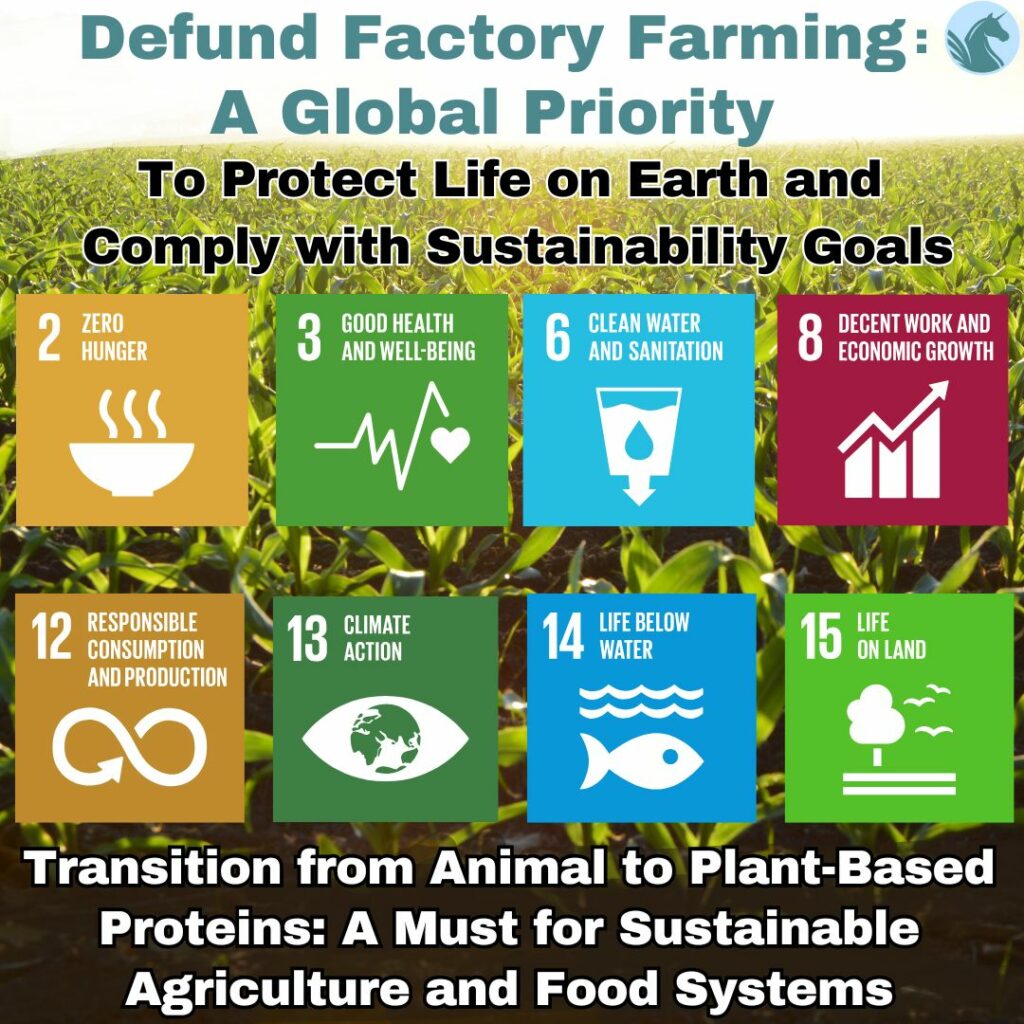
Factory Farming: A Direct Threat to the UN SDGs
Factory farming is fundamentally at odds with the United Nations Sustainable Development Goals (UN SDGs) and key environmental instruments. The UN SDGs aim to eradicate hunger (SDG 2), ensure good heath (SDG 3), the availability of sustainable water management (SDG 6), ensure decent work (SDG 8), ensure responsible consumption and production (SDG 12), take urgent action against climate change (SDG 13), and protect life on land and below water (SDGs 14 & 15). However, industrial animal agriculture is responsible for:
- Food Inequality (≠ SDG 2): Rather than addressing global hunger, factory farming funnels food resources into meat production for high-income countries, worsening food inequality. Crops that could directly feed people are instead used as animal feed, driving up food prices and making staple foods less accessible to low-income populations. (ciwf.org.uk)
- Public Health Concerns (≠ SDG 3): Factory farming poses significant public health risks as “pathogen bombs” with zoonotic diseases, antibiotic resistance, foodborne illnesses, cardiovascular diseases and colorectal cancer (WHO)
- Water depletion (≠ SDG 6): Factory farming is responsible for over 70% of global freshwater usage, putting an immense strain on water resources. (ourworldindata.org)
- Workers Suffering (≠ SDG 8): Factory farming not only harms animals but also severely affects the wellbeing of workers. Employees face high rates of physical ailments and psychological distress, due to hazardous conditions. (pmc.ncbi.nlm.nih.gov). Moreover, slaughterhouse employees face high rates of depression and even suicide, due to the inherently traumatic nature of their work involving the killing of many living sentient beings everyday. (sentientmedia.org)
- Irresponsible and unsustainable food system (≠ SDG 12): Factory farming perpetuates systemic animal cruelty, confining animals in overcrowded and unsanitary conditions, subjecting them to painful procedures without anesthesia, and denying them natural behaviors. These inhumane practices also pose health risks to humans and lead to environmental degradation. Such methods undermine the objectives of responsible production and consumption patterns. (awionline.org)
- Greenhouse gas emissions (≠ SDG 13): Factory farming accounts for approximately 14.5% of global anthropogenic greenhouse gas emissions, primarily from methane, which has a warming potential more than 28 times that of CO₂. In contrast, plant-based protein production generates significantly fewer emissions, supporting climate mitigation strategies outlined in the Paris Agreement. (aspca.org) (cropsandsoils.extension.wisc.edu)
- Pollution and Eutrophication (≠ SDG 14): Factory farming operations lead to nutrient runoff, notably nitrogen and phosphorus, into water bodies, causing eutrophication. This process depletes oxygen in aquatic ecosystems, resulting in dead zones and loss of marine biodiversity. (oceanliteracy.unesco.org)
- Deforestation and Land Degradation (≠ SDG 15): The expansion of industrial farming drives deforestation and soil degradation, threatening terrestrial ecosystems. Agriculture accounts for a significant portion of global deforestation, leading to biodiversity loss and undermining efforts to protect life on land. (beyondcruelty.org)
Redirecting financial support from industrial animal farming towards plant-based protein development would help nations meet their climate and biodiversity commitments while improving animal welfare, food security and sustainability.
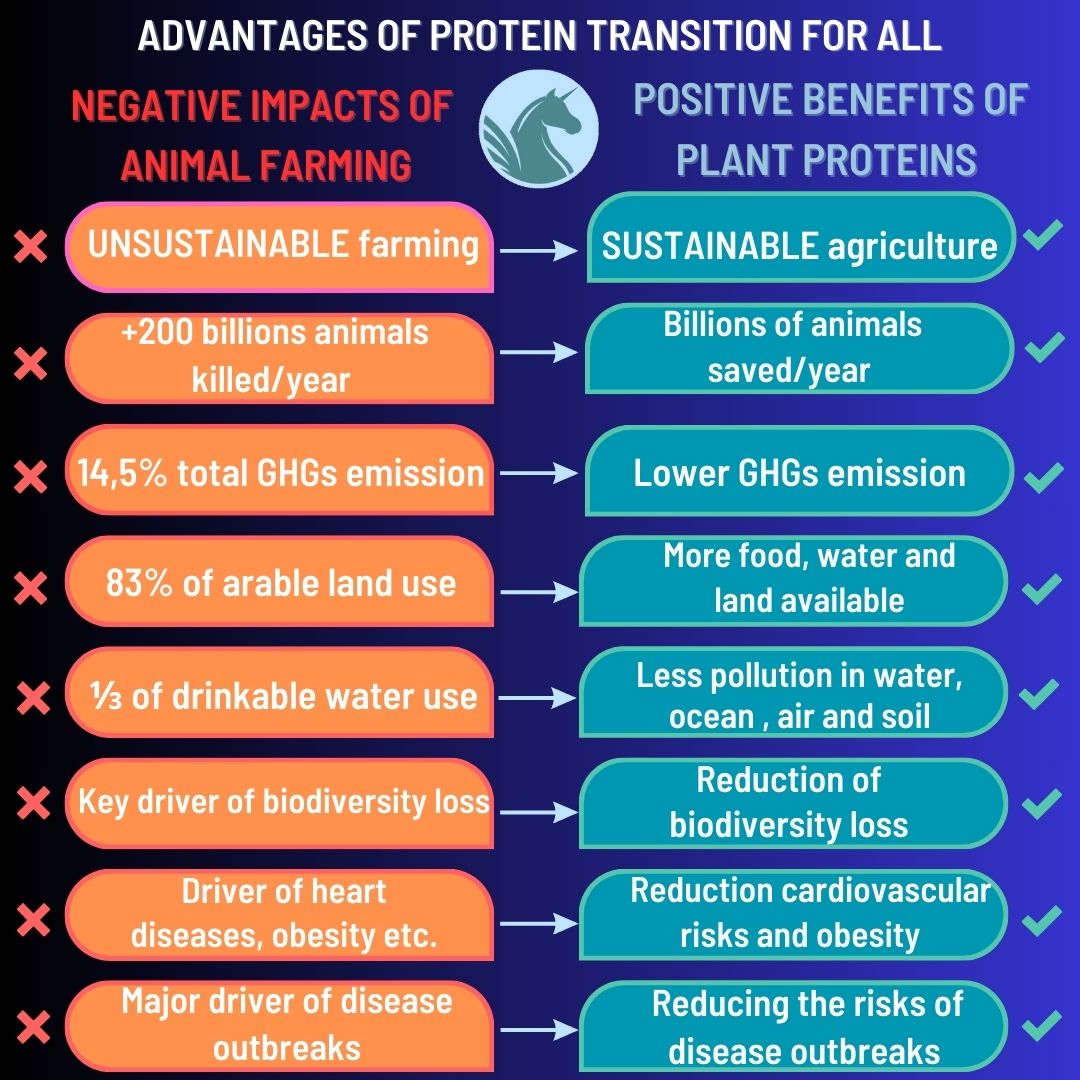
Resource Inefficiency: Animal vs. Plant Proteins
Producing animal-based proteins is markedly resource-intensive:
- Generating one kilogram of beef requires about 15,000 liters of water, while the same amount of soybeans necessitates only 2,100 liters (Our World in Data).
- Producing one kilogram of beef requires 25 kilograms of feed, compared to just 2 kilograms of feed for plant-based protein sources such as soy or peas.
- Animal agriculture uses 83% of the world’s farmland while providing only 18% of global calorie intake.
Beyond water usage, the overall resource expenditure—including feed, land, and energy—is substantially higher for animal agriculture. Transitioning from meat to plant-based protein production offers economic benefits. Producing 1 kg of protein beans requires significantly fewer resources—18 times less land, 10 times less water, 9 times less fuel, 12 times less fertilizer, and 10 times less pesticide—compared to producing 1 kg of protein from beef. (pmc.ncbi.nlm.nih.gov)
This shift not only reduces production costs but also aligns with sustainable development goals, promoting economic growth and environmental sustainability.
Factory Farming: A Failing Economic Model Sustained by Subsidies
Contrary to perceptions of profitability, factory farming often relies heavily on subsidies to remain economically viable:
- In the European Union, farmers receive approximately 1,200 times more public funding than those producing plant-based or cultivated meat alternatives (Earth.org).
- The Common Agricultural Policy (CAP) provides billions of euros annually to subsidize industrial meat and dairy production, artificially lowering their market prices while making plant-based alternatives less competitive. (mahb.stanford.edu)
- The European Commission’s Vision for Agriculture and Food acknowledges the need to enhance animal welfare standards but lacks comprehensive financial support and long-term strategies to transform Europe’s food systems. (Eurogroup for Animals)
- Instead of investing in sustainable alternatives, the European Union spends €28–€32 billion per year supporting intensive farming, while plant-based protein development receives a small fraction of that amount. A recent study reveals that in the EU and the US, livestock farmers receive approximately 1,000 times more public funding than producers of plant-based and meat alternatives, significantly hindering the development of sustainable food alternatives. (theguardian.com)
- In 2023, European research efforts for alternative proteins, including plant-based and cultivated meat, received a record €290 million in funding. This amount represents less than 1% of the subsidies allocated to factory farming (greenqueen.com.hk).
This disparity highlights the need for a strategic reallocation of resources to promote sustainable and efficient food systems. Redirecting subsidies toward plant-based protein development could enhance animal welfare, but also food security, reduce environmental impact, and align with public health objectives.
The World Bank: A Major Investor
The World Bank has pledged to double its agricultural funding to $9 billion annually by 2030, aiming to support sustainable and climate-smart agricultural practices. However, recent analyses reveal that a significant portion of this funding continues to support industrial agriculture, including factory farming, which is a major contributor to environmental degradation and greenhouse gas emissions. (desmog.com)
In 2023, 16 leading international finance institutions invested a total of $3.33 billion in animal agriculture. Notably, 68% of these funds ($2.27 billion) were directed towards industrial agriculture or factory farming projects, while only 2% ($77 million) supported non-industrial, more sustainable animal farming practices. The World Bank Group was identified as the largest investor in factory farming, contributing $747 million in 2023, with $501 million from its private sector arm, the International Finance Corporation (IFC). (desmog.com)
These investment patterns raise concerns about the alignment of financial institutions with global sustainability goals. Redirecting funds from factory farming to sustainable agricultural practices, including plant-based protein production, is essential to mitigate environmental impacts and promote ethical food systems.
In a letter from February 2025, advocacy groups including Friends of the Earth U.S. and Compassion in World Farming have urged World Bank President Ajay Banga to immediately cease funding for industrial livestock farms. They warn that such financing contributes to environmental degradation and increases the risk of future pandemics. The coalition is calling for an independent review of factory farming’s role in disease transmission and advocates for redirecting investments toward more sustainable agricultural systems. (devex.com)
New Evidence: Economic Benefits of the Plant-Based Transition
Recent findings from Faunalytics’ 2024 Plant-Based Economic Impacts report offer powerful evidence that public investment in plant-based food innovation delivers substantial economic, environmental, and public health returns. The study estimates that a $10 billion investment in plant-based food development and scaling could generate over 100,000 new jobs, increase national GDPs by up to $30 billion, and yield up to $500 billion in cumulative climate-related savings by 2050 in countries like the U.S. and across the EU. These economic gains are amplified by reduced healthcare costs linked to lower rates of diet-related diseases, and by the significantly more efficient use of land, water, and energy compared to animal agriculture. The report emphasizes that the plant-based sector offers not only a more sustainable and ethical food system, but also a major opportunity for economic growth, innovation, and resilience. These findings reinforce the urgency of redirecting subsidies away from factory farming and toward plant-based protein industries—not only to address the climate and biodiversity crises but to stimulate economic prosperity and future-proof the food system.
The French Case: A Critical Role in the Transition
As a major producer of meat and milk products in Europe, France has a key role to play in sustainable food system transition.
Indeed, France holds a prominent position in Europe’s meat and dairy production:
- Beef Production: In 2023, France was the leading producer of beef in the European Union, contributing 20.7% of the EU’s total beef output. (ec.europa.eu)
- Milk Production: France is the second-largest producer of cow’s milk in the EU, accounting for approximately 16.2% of the total milk deliveries in 2023. (clal.it)
In France, industrial farming continues to receive a disproportionate share of public subsidies, despite growing citizen demand for ethical and sustainable agriculture. According to the French National Institute of Statistics and Economic Studies (INSEE), 80% of agricultural subsidies still support industrial farms, reinforcing an environmentally and ethically damaging model. In 2024, this amounted to €9.5 billion in public funds.
Meanwhile, public investments in plant-based protein development remain marginal. While some initiatives exist, the funding allocated to plant-based proteins is minuscule compared to the vast subsidies supporting industrial animal farming (GFI.org).
This funding disparity stands in stark contrast to public opinion. A 2024 IFOP survey (IFOP) found that 84% of French citizens support banning intensive farming and demand a transition toward ethical and sustainable agriculture.
To align with public sentiment and environmental imperatives, France must reassess its agricultural subsidy policies. Redirecting public funding toward sustainable plant-based protein development would not only meet citizens’ expectations but also support climate, biodiversity, and public health goals. Such a shift would help create a food system that respects animal welfare, reduces environmental damage, and promotes public health for all, as aligned with the ‘One health’ concept.
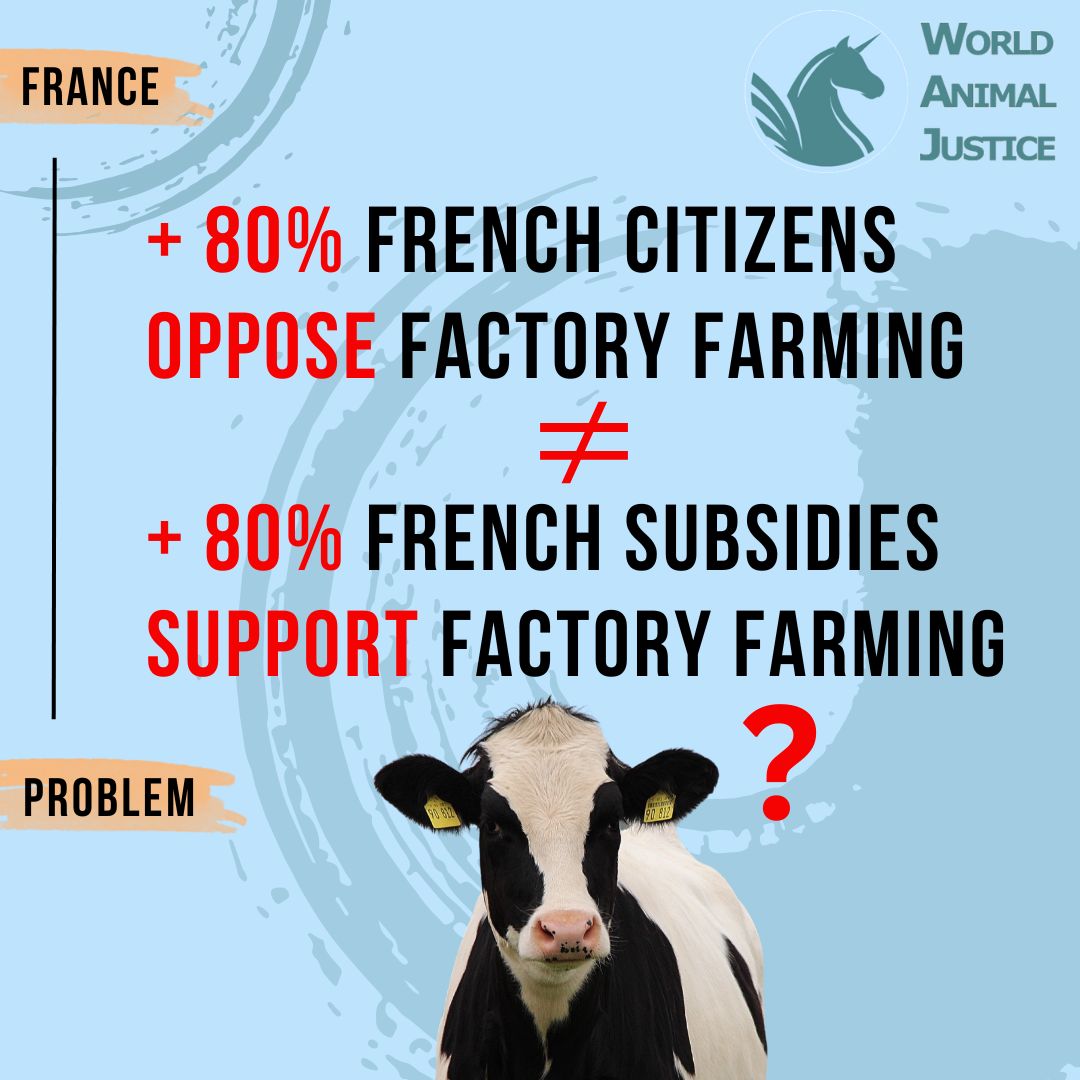
WAJ Call to Action
Defunding factory farming must be a global priority. Redirecting subsidies toward plant-based protein development would drastically reduce emissions, protect ecosystems, improve public health, and align with global sustainability commitments. Now is the time to act for the benefit of people, the planet, and animals.
A global UN ban on factory farming is essential. World Animal Justice (WAJ) is actively supporting this initiative as part of the END.IT coalition led by Compassion in World Farming (CIWF). A new global food governance system centered on plant-protein development would create a necessary shift from animal-based to plant-based proteins, aligning with FAO strategies on sustainable agriculture, food transformation, and producing more with less (FAO).
This is why WAJ is actively advocating for the reallocation of massive subsidies currently allocated to factory farming toward the production and development of plant-based alternatives. WAJ is promoting a paradigm shift through the meat-to-plant transition framework, advocating for new laws and policies that make alternatives to animal products mandatory, affordable, and accessible for all.
This vision aligns with the global commitments adopted by sovereign States, while continuing to massively fund factory farming is in violation with the green and blue agreements to protect life on earth and our environment. This transition is not only necessary but vital for present and future generations—to protect humans and non-human living beings alike.
Defunding factory farming can and should become a new legal imperative worldwide. Redirecting subsidies and support farmers transition toward plant-based protein development would save billions of terrestrial and aquatic animal lives, while drastically reduce emissions, protect ecosystems, improve public health, and align with global sustainability commitments. It is time to act for animals, people, and the planet.
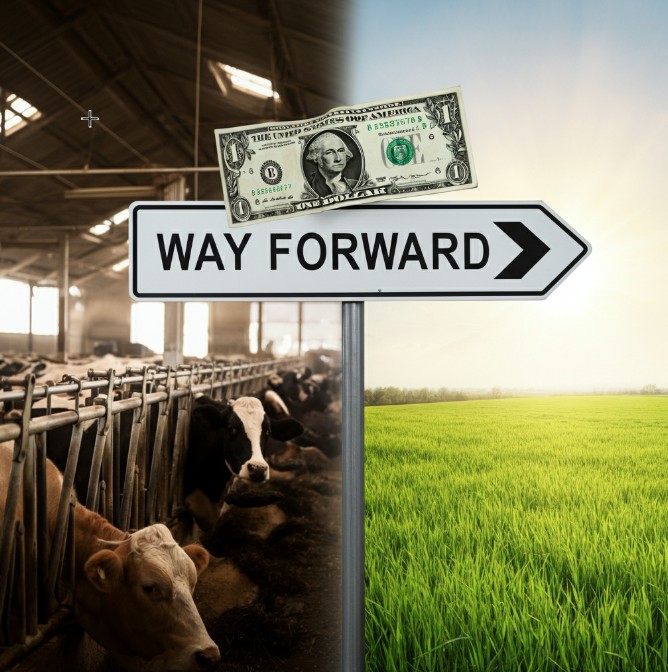
Conclusion: 3 Strategic Imperatives
This study led to identify 3 major strategic imperatives for Ethical and Sustainable Food Governance :
1- Defund Factory Farming: Progressively reduce public subsidies to factory farming in compliance with sustainability commitments. Currently, industrial farmers receive significantly more public funding than producers of plant-based proteins and alternatives, contradicting sustainability goals at both supranational and national levels.
2- Allocate More Subsidies to Plant-Based Proteins: Increase financial support for the development of plant-based proteins to promote sustainable agriculture. Despite their environmental benefits, alternative protein sectors have historically received only a small fraction of public funding compared to industrial farming industries. Redirecting subsidies will encourage the development, accessibility, and affordability of plant proteins and alternatives to animal products for human consumption.
3- Support Farmers’ Transition to Sustainable Agriculture: Provide financial assistance to farmers transitioning from factory farming to sustainable practices, facilitating the closure of factory farms. Programs offering investment funds, grants for conversion plans, and loan guarantees can support farmers in adopting regenerative agriculture, enhancing environmental stewardship and economic resilience.
Implementing these actions is crucial to realign public policies with sustainability goals and societal expectations for healthy, ethical, and eco-friendly food systems.
Embracing this transformative change is imperative to ensure sustainable agriculture and protect all forms of life on Earth.
